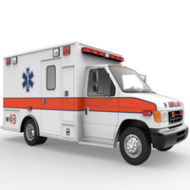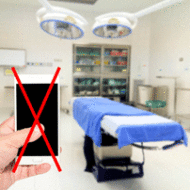Direct Transport to Specialized Care Hospitals
June 26, 2018If someone is suffering from a heart attack, immediate access to life-saving medical care is crucial. In some states, emergency medical services (EMS) are required to transport the patient to the closest hospital for treatment. However, if that facility does not offer the specialized treatment needed, the patient’s condition may worsen. Other states allow EMS » Read More
Maryland Hospitals Have Reduced Errors
June 14, 2018Hospitals strive to provide exceptional care to all patients. After being ranked in the bottom five of the country’s safest hospitals, the state of Maryland has taken proactive steps to improve their safety rating by reducing medical errors and preventing injuries and infections. According to a safety assessment by the Leapfrog Group, the changes have » Read More
Cell Phones in Operating Rooms
January 11, 2018Research shows that cell phone use in operating rooms is not uncommon. In a report prepared by Kaiser Health News and the Washington Post, and published by the American Society of Anesthesiologists, medical personnel told reporters that they observed colleagues using their cell phones for things that were unrelated to the procedure taking place. Specifically, » Read More
Cameras in the Operating Room
January 9, 2018When something goes wrong during a surgical operation, the only people who can describe what happened are those who were present in the operating room. This is usually limited to members of the medical team, who may be the very people responsible for surgical errors or negligence. However, new legislation might change this. A bill » Read More
Sick Healthcare Professionals Put Patients at Risk
December 4, 2017When people acquire an illness, they trust doctors and nurses to help them recover. When healthcare professionals (HCPs) acquire illnesses themselves, they are not able to provide the care their patients need. Hospitals and other healthcare facilities must have systems in place to ensure that sick workers can stay home and avoid infecting patients. However, » Read More
Lack of Response to Safety Issues in Hospitals
October 26, 2017According to a recent article published by USA Today, hospital safety issues are not always addressed in a timely or productive manner. Depending on the specific issue, patients can be at risk for a wide range of illnesses and infections. Even when safety issues are officially reported, hospitals rarely face consequences that are serious enough » Read More
Disclosing Medical Mistakes May Reduce Malpractice Costs
July 31, 2017When a patient has been injured or has passed away as a result of a medical mistake, the standard operating procedure that doctors have followed has been to deny any wrongdoing and defend their care. For the patients who suspect negligence, and pursue a medical malpractice case, it can be a long, stressful, and emotional » Read More
Health Risks Caused by Electronic Health Records
July 11, 2017Electronic Health Records (EHRs) are used to improve patient safety, reduce medical errors, and establish a more effective workflow. However, research indicates that EHR-related medical malpractice claims may be on the rise. While the percentage of EHR claims are not significant, the associated costs are disproportionately high. EHR-related mishaps can be extremely costly and quite harmful to patients when » Read More
Contaminated Water in Hospitals
June 26, 2017Federal health officials recently issued a warning to hospitals and nursing homes across the country to be more vigilant about protecting their patients from diseases that can show up in contaminated water systems. According to the Centers for Disease Control and Prevention’s Morbidity and Mortality Weekly Report, there were over 2,800 reported cases of Legionnaires’ » Read More
Hospice Care
June 21, 2017Hospice care is end-of-life medical care that is designed to ease suffering and keep patients as comfortable as possible. In the United States, hospitals vary in terms of how and when they decide to move stroke patients from a treatment facility to hospice. A recent study found that doctors are more likely to recommend hospice » Read More















